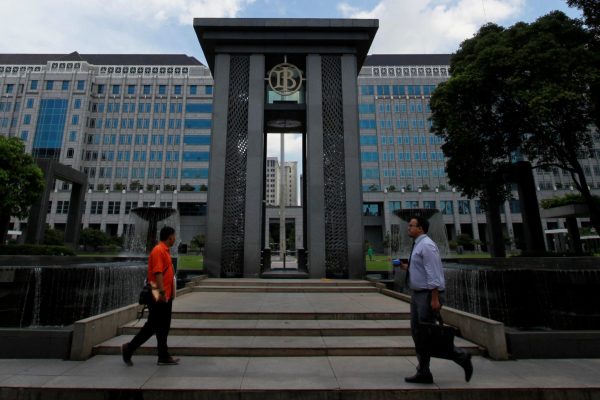A few weeks later though, Indonesia’s central bank — Bank Indonesia (BI) — released a financial report containing its own estimates of inbound FDI. BI recorded just US$163 million from China during 2016 (US$1.4 billion including Hong Kong), about a quarter of BKPM’s estimate. Unlike BKPM’s announcement, the release of BI’s data was without fanfare. It also came without any explanation of the significant discrepancy with BKPM’s figures.
This discrepancy nurtures the sense of confusion that already surrounds the role and growing activities of Chinese companies in Indonesia.
One explanation for the difference is that BI estimates FDI inflows on the basis of foreign transactions recorded in Indonesia’s financial system. These reflect actual inflows from China and Hong Kong. BKPM on the other hand may have recorded the total value committed to FDI projects rather than just the initial outlays. For example, BKPM attributed some of the record FDI from China to a Chinese nickel smelter and a power plant — projects typically financed in tranches during the period it takes to build them.
Another explanation is that some Chinese companies channel their investment through Singapore. The city-state’s legal system provides the security that they prefer, while its financial system offers ready access to finance if required. Most of China’s large state-owned banks are represented there and they provide services to China’s largest state-owned enterprises.
In 2015, Singapore held 51 per cent of the US$62.8 billion outward stock of Chinese FDI to ASEAN countries. This is almost the same as the $64.7 billion outward stock of Singapore’s FDI in other ASEAN countries in 2015. As Indonesia hosted 51 per cent of Singapore’s outward stock of FDI that year, it may also be the main recipient of this Chinese FDI channelled via Chinese subsidiaries located in Singapore.
Outward FDI statistics published by China’s Ministry of Commerce (MOFCOM) add to the statistical confusion. From 2004–2015, MOFCOM granted 628 Chinese companies permits to establish subsidiaries in Indonesia, including 131 representative offices. But during these same years, BKPM recorded more than 2500 realised FDI projects from China, and a further 1100 from Hong Kong. These numbers don’t match up.
MOFCOM’s underreporting is likely due to Chinese firms simply bypassing official channels and independently accessing foreign exchange for FDI purposes. This trend led to the Chinese government loosening permit requirements in 2014 so that only Chinese firms seeking operations in ‘sensitive’ countries or industries have to apply for permission.
MOFCOM’s latest data also records US$1.5 billion worth of approved outflows of FDI to Indonesia during 2015. But for this same period, BI recorded US$379 million of FDI inflows from China and BKPM reported the figure of US$628 million. MOFCOM’s data records also show an accumulated stock of FDI in Indonesia of US$8.1 billion in 2015, while from 2004–2015 only US$4.9 billion arrived according to BI and US$2.4 billion according to BKPM.
These are confusing discrepancies but they can be put down to three factors. First, Chinese firms are channelling some of their FDI via Hong Kong and Singapore without notifying MOFCOM. Second, China’s centrally-registered state-owned enterprises applying for MOFCOM permits are investing in Indonesia in tranches. Third, MOFCOM’s stock estimates include re-invested earnings of Chinese companies in Indonesia.
China’s statistics are helpful for another issue that is often misunderstood in Indonesia. The rapidly growing presence of Chinese companies in Indonesia is due to many of them being contractors and subcontractors for the construction and management of projects supported by Chinese government agencies as part of its Belt and Road Initiative (B&RI).
So many Chinese companies are involved in B&RI that their role is often confused with companies conducting FDI. There are 49 Chinese construction companies in Indonesia that have had to establish a subsidiary company to be able to pay local subcontractors and workers. Their FDI in Indonesia’s construction sector is relatively small, but the value of their projects is high.
The 2016 China Statistical Yearbook shows that the total value of projects completed by Chinese companies in Indonesia in 2015 was US$4.8 billion, which is much more than FDI from China that year. This amount is not FDI. Rather, it is the contracted value of the projects of Indonesian central and regional governments or government authorities and private companies. Chinese companies were successful in tendering for these projects because of their competitive prices and the fact that the projects were financed with concessional loans with low-interest rates and long repayment periods, provided by China’s state-owned banks.
Awarding these contracts to Chinese companies has had a few consequences. First, Indonesia’s foreign debt to China has increased six-fold between 2010 and 2016, albeit from a low level, while Indonesia’s debt to other countries increased by a factor of just 1.3. Second, Chinese contractors and subcontractors are often sourcing materials and equipment from their suppliers in China rather than Indonesian businesses. Third, about half of the 31,030 Chinese expats working legally in Indonesia are employed at construction projects. These consequences come with their own set of issues for the future.
For now though, consistent and transparent information from official institutions about the role of Chinese companies in Indonesia’s economy is needed in order to curb growing misinformation about these companies’ nature, size and intentions.
Tao Kong is Associate Professor in Economics at Peking University and Pierre van der Eng is Associate Professor in International Business, The Australian National University.

